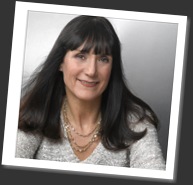About 155,000 people die around the world each day. But this crude figure seems like nothing when we’re faced with personal loss.
Even horrific multiple deaths from terrorism, in war or by negligence recede into a dulled, numbed hinterland in the attempt to struggle with the agony of one’s own bereavement.
All religions have developed universally-followed customs to help mourners cope with their loss and the noble rituals surrounding death in Judaism are as strong as any commandment delivered at Sinai.
Indeed, the ceremony of purifying the deceased for burial is considered to be among the most sacred acts in Jewish tradition and is performed by a community’s chevra kadisha (an Aramaic word best translated as ‘holy brotherhood’).
 Now this esteemed rite and the volunteers who do it have been brought to the attention of a wide, cross-cultural and inter-religious audience with a novel by American-Israeli journalist and novelist, Diana Bletter, who performs such work herself.
Now this esteemed rite and the volunteers who do it have been brought to the attention of a wide, cross-cultural and inter-religious audience with a novel by American-Israeli journalist and novelist, Diana Bletter, who performs such work herself.
A Remarkable Kindness, set against the background of the 2006 Lebanon War between Israel and Hezbollah, looks at the lives of four US-Israeli women who live in a northern coastal co-operative village similar to that in which the author lives today.
Her book has such an unusual theme, that I asked her in an on-line interview how she would classify it:
My novel, A Remarkable Kindness, transcends genre because it touches on universal themes. It’s a celebration of the positive power of friendship; it explores the idea of finding inspiration and deeper meaning through ritual and spirituality; and it talks about appreciating each moment of life—sometimes against all odds.
To use the work of a chevra kadisha as the backbone of your plot is startling different; some may say ‘bold’. Why did you do this?
I happen to be a member of the burial circle in real life in the small beach village where I live in northern Israel. The chevra kadisha, what I have taken poetic licence to call a ‘burial circle’, encompasses a beautiful ceremony. I wanted to share my excitement about this ritual with readers, many of whom are unfamiliar with it. I thought the ritual would make a perfect counterpoint to the plot which moves at a fast pace, and a perfect way to delve into a variety of fascinating issues.
Please tell me a little about yourself and your family; why you decided to emigrate to Israel from the United States.
My parents were first-generation Americans whose parents came from Poland and Russia. They came from large families, some of whom had immigrated to Israel in the early 1900s. I was moved by my extended family’s courage and their dedication to building Israel. I wanted to be part of the country from an early age; it just took me a while to get there.
How long have you been in Israel? At the co-operative village of Shavei Zion? How have your reconciled your wanderlust with needing to stay in one place long enough to raise your family? Have any of your children inherited your trait?
I moved directly to Shavei Zion from New York in 1991. We had been living in a lovely suburb but I wanted my children to experience something different. And it was! At the time, there were about 800 people and cows, chickens, and horses. The village is right on the beach and its agricultural co-operative has orchards and field crops. Our children have all grown up; all are in Israel except one who is working in California. I am staying put but I still love to wander.
You appear to know Nahariya, Rosh Hanikra (although not named in the story) and the area very well. Why did you choose to live there as many ex-pats prefer central Israel or the larger cities?
I wanted to live in a pastoral environment. Our village is ten minutes away from Nahariya. My husband and I are avid runners and bike riders and I love being outdoors. In one day, I can see the sun rise in the fields and then set in the sea. Oftentimes, I get to see the moon rising above the hills as the sun sets. What a gift!
When did you start writing books as opposed to journalism? Do you now concentrate on this exclusively?
I have always worked as a freelance journalist while trying to write both fiction and non-fiction books. I think it’s helpful for me to write in both disciplines so that I stay in practice. Because writing is like any other exercise. We must work at it. We must practice. Each writer is the same when we face the blank page. It’s our job to fill it with words!
Do you have personal friendships with your Arab neighbours? Do you know anyone who has had an inter-community romance like that in your story or even marriage? If so, did it work out?
I have many friends who live in the village of Mazra, across the road from where I live. I also belong to a women’s peace group based in Akko, Akko Vision, consisting of Muslim, Christian, Druze, Bahai and Jewish women. We have done a variety of community projects that have been successful. And yes, I know several intermarried couples and they are very happy. Love is always stronger than hate.
What do you have planned next?
I am working on a novel set in New York City in the early 1900’s.
* A Remarkable Kindness by Diana Bletter is published by HarperCollins and is available on-line from Amazon and the Book Depository and also in Israel at Steimatzky.
© Natalie Wood (01 August 2015)

No comments:
Post a Comment